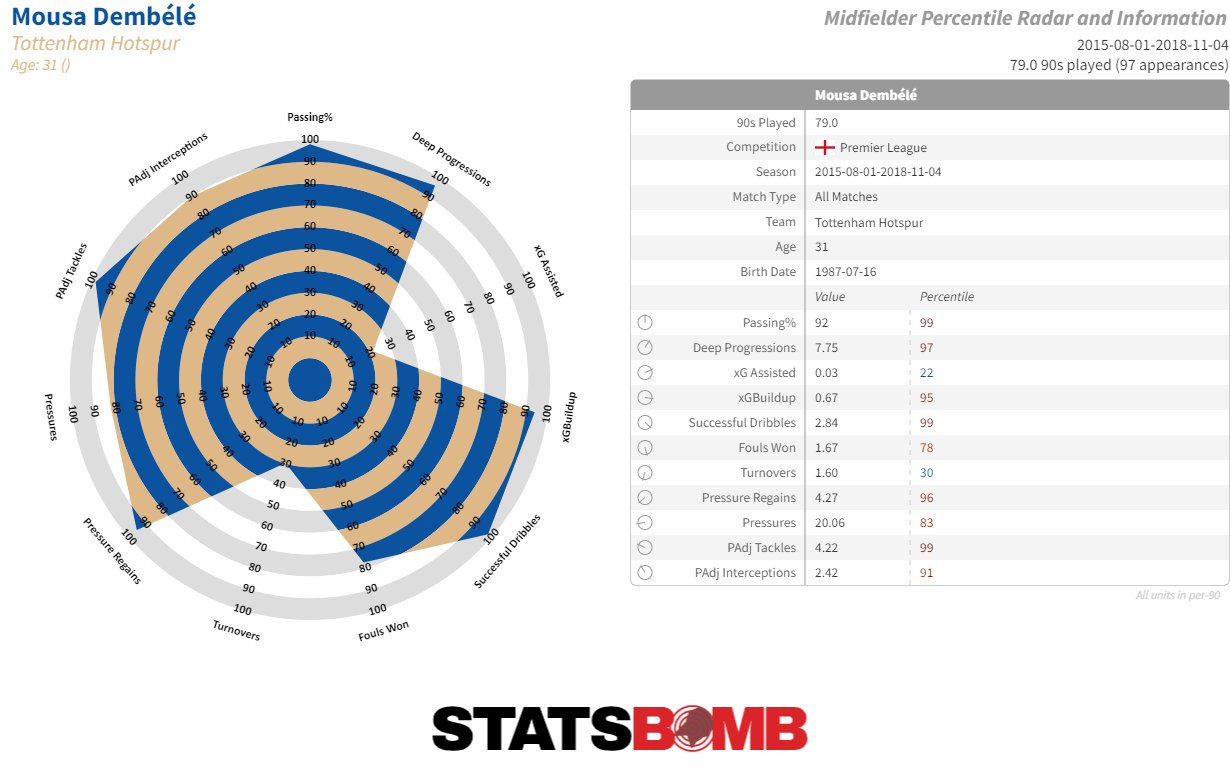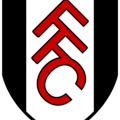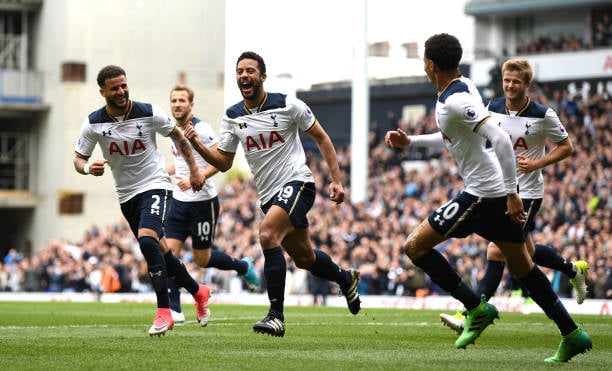In the January of 2019, Mousa Dembélé left Tottenham Hotspur for the Chinese Super League after six and a half superb seasons in North London, leaving behind a hole in the Spurs midfield that many fans say has never been filled.
To many though, it is a vacancy that can't ever really be filled, because Mousa Dembélé was, quite simply, irreplaceable.
As Mauricio Pochettino once half-joked as early as 2016, “Without Mousa Dembélé, we do not exist.”
Years later Pochettino would go on to speak Dembélé's name in the same breath as those of Maradona and Ronaldinho when listing the exclusive club of players with whom he has been lucky enough to work, worthy in his mind of the tag 'genius'.
Yet when debates arise among fans and pundits over the greatest midfielders in the Premier League era, Dembélé's name rarely enters the conversation at all. Perhaps it's his modest tallies in goals and assists, perhaps, as with so many Tottenham players, it's his lack of silverware, but to those who saw him up close and personal on the pitch, there is no doubt who was the best.
In this piece, we take a look at the Belgian's unique talent and exactly what made him so special, why so many who faced him or played alongside him speak so incredibly highly of his ability, and we take a deep dive into the metrics behind his brilliance.
The early years...
Dembélé began his career in his native Belgium, before moving to the Netherlands and then on to the Premier League with Fulham in 2010. As a boyhood Barcelona fan, he idolised Dutch forward Patrick Kluivert, a man he would briefly play under when Kluivert was Louis Van Gaal's assistant at AZ Alkmaar in the Eredivisie.
For most of his early career Dembélé sought to emulate his hero and played mainly as a striker or even a winger - a natural home for a player of his balance and technique. But it was another former Spurs favourite in Martin Jol who eventually converted him from a forward into a central midfielder during his time as Fulham boss. Jol, incidentally, described Dembélé as 'probably the best player on the ball [he had] ever seen'.
The transition was a great success and earned Dembélé his 2012 move to Spurs, one which handed him the unenviable task of following Luka Modrić and filling his Galáctico-sized boots in the midfield. As the years progressed Dembélé would go on to become one of the first names on Mauricio Pochettino's illustrious team sheet and a key component of Spurs' most effective side in modern history. It was here where the world saw Dembélé at his very best.
The testimonials...
At its peak, Pochettino's Tottenham was a side littered with talent, from Kane, Dele and Son up front to fellow Belgians, Vertonghen and Alderweireld at the back. Ask any of them who the best player in the side was though, and the answer was unanimously the same.
When asked who the best player at Spurs was, Dele replied: "In my opinion, Dembélé - I think he's very good. His feet are unbelievable. He's so big and he shifts his body so easily."
Harry Winks had the same answer when quizzed by Sky Sports: "Mousa Dembélé - he's got sheer power, pace, his strength and his technique as well. The way he can beat any player facing them up, for me he is the best player."
Eric Dier was similarly in no doubt when asked. "Have you not seen him play? Mousa’s just special, full stop. He’s incredible because he’s massive. One of his legs is two of mine. His balance is incredible. His movement physically is so superior and then to ally that with the technical ability he has is incredible."
Danny Rose agreed - “Mousa Dembélé – he’s the most difficult to tackle." Going on to add that "he’s made half the Premier League look silly with his skills, and we have to suffer that every day in training! He’s a joy to watch.”
Compatriot Jan Vertonghen had this to say: "I don't think people know how good Mousa is. You can ask every single player in the team and I don’t think you can describe how good Mousa is. You can only know if you play with him or against him, see him train for a couple of weeks, then you’ll find out."
But it's not just the players who were in the team with him at the time who talked in such glowing terms. Speaking only in May of 2023, former teammate Kyle Walker described Dembélé as 'probably the best player he has ever seen play football'. When you think of some of the players Walker has played alongside or against, that is some statement indeed.
One man who you might forgive for feeling somewhat aggrieved by that claim is Walker's current teammate and Dembélé's former international colleague, Kevin De Bruyne, but even he claimed Dembélé would be his pick for 'the best 5-a-side player in the world'.
It's not just those lucky enough to have played alongside him though, who have recognised his brilliance. Rival players who were tasked with trying to stop him have been just as complimentary. When Jack Wilshere was asked in 2021 who his toughest opponent was, after namedropping encounters with Iniesta and Messi, he replied,
"Mousa Dembélé," adding "I used to play against Dembélé a lot and I hated it. You couldn’t get the ball off him, he was strong, quick, powerful and also really good on the ball. His dribbling was a joke and he was difficult to play against.”
Granit Xhaka recalled the story of where, in the middle of a match, he flat out asked Dembélé, "How do you do what you do? You front me up, I think I am going to tackle you and you manipulate the ball and move it so quickly". "He was laughing", Xhaka added.
Ross Barkley and Scott Parker are just another two of the huge list of players to have described Dembélé as the hardest player they've ever played against and the endorsements do not end there.
But why was Dembélé so revered by his peers? How do you even define him as a player and what did he actually do on the football pitch that made him such a force to contend with?
Writing for the Guardian in 2018, Bart Vlietstra brought us an article entitled 'Moussa Dembélé: part ballerina, part tank but the complete midfielder'.
In his piece he goes on to elaborate that "he is not a typical playmaker, nor a holding midfielder or box-to-box-player. He is not merely a Zola-esque technician or a pure Keane-esque tackler; he is all this combined and more."
Adam Bate, writing for Sky Sports in 2018, had this to say.
"The Belgian brings things to this team that nobody else can - and not just this team. Dembélé's skill-set is unique anywhere. Even in the age of universality with defenders who can attack and attackers who can defend, he is a one-off - impossible to knock off the ball but with that rare ability to beat players in central areas."
Jonathan Wilson, author of Inverting the Pyramid - and a man who knows a thing or two about football tactics had this to say when describing the weight of Dembélé's absence from the Spurs lineup following a 6-match suspension back in 2016:
"His importance to Tottenham is extraordinary. Since Dembélé returned from a foot injury last October, Tottenham have not lost in a game he has started. His drive, his willingness to receive the ball in tight spaces and his capacity for emerging from trouble to poke a pass forward became invaluable - too valuable perhaps."
The Athletic's Michael Cox, then writing for ESPN, captured the Belgian's uniqueness really well in a 2014 article entitled 'Mousa Dembélé - breaking the mould', writing:
"There are few players with no obvious template, but Tottenham's Mousa Dembélé is a unique player. Or rather, he is nowadays, in his current guise as a roaming central midfielder."
He goes on to add:
"As a midfielder, he's an entirely different beast, which is the odd thing about him - in theory, he's the epitome of universality as a talented all-rounder, yet in another sense he's a gloriously distinctive individual with no obvious contemporary."
In another article, Cox noted that, "It's difficult to think of another central midfielder so adept at turning away from pressure, at slaloming past opponents to launch a quick break"
More recently, in an article entitled ‘Damn, I really miss Mousa Dembélé, too’, Ryan O'Hanlon writes:
"People would joke about Andrea Pirlo being able to hold a glass of wine in his hand while he played, thanks to his smart positioning and long-range passing. Dembélé could do it, too, and he’d be dribbling through the opposition press at the top of his own box or through the heart of the other team’s midfield. He manages to make the riskiest action on the field -- a dribble - look like a foregone conclusion."
Alex Dunn, who, in a Bleacher Report article in 2018, described him brilliantly as ‘a bulldozer in a tutu’, when commenting on his combination of strength and power with balletic grace on the ball, had this to say:
"He truly is a unique specimen. Is there another player in world football who dribbles as well as they tackle? Or one who is as happy taking the ball when heavily marked as making a last-ditch sliding tackle? …As left-footed as Ferenc Puskás, there is no secret to where he'll take the ball, but then every fighter who got in the ring with Muhammad Ali knew he had a left hook that could lift you so far off your feet you'd kiss the clouds."
By now you’re starting to get the picture – players, pundits and journalists alike were all in awe of Dembélé’s brilliance, but what do the numbers say?
The numbers...
Much had been made, perhaps unhelpfully, of his modest figures when it came to goals and assists but, when you look at what happened when you took him out of a team, it’s clear as day that any such critics are missing the bigger picture.
In Jonathan Wilson’s article about Dembélé in 2016 where he details Tottenham’s struggles without the Belgian following a suspension, he went on to explain how, with Dembélé in the team across the previous season, Spurs averaged 2.3 points per game - without him, just 0.9. For some quick maths here, if we were to expand that across a 38-game season you would end up with just over 87 points, enough to win the title in some years of the Premier League era and also a Premier League record tally for Spurs. Since the start of that season at the time of Wilson’s article, Harry Kane had scored 24 goals in 27 games when he’d played with Dembélé; in the 12 games he’d played without him, he’d scored only one.
When Dembélé announced that he was hanging up his boots in February 2022, the football analytics service, StatsBomb tweeted the words ‘happy retirement to the most press-resistant midfielder there ever was’… followed by a tongue-in-cheek question mark in brackets. The tweet was however accompanied by this graph showing some key metrics from his time at Tottenham, spanning the years 2015 through 2018 - a period probably representing his peak years in a Spurs shirt. The graph shows his performance in selected metrics when compared to other midfielders in the Premier League across the same timeframe. Just a quick glance at this graph and some of the maxed out axes gives you some idea how impressive the Belgian was in this period but let’s take a closer look.

Some of these metrics are rather self-explanatory. Over these 3 years, Dembélé was in the 99th percentile for both pass completion and successful dribbles. That alone is outstanding, but it doesn’t end there.
Some of the other metrics start to stray into less familiar territory so let me break some of them down for you. Dembélé scored in the 97th percentile for something called ‘deep progressions’, this title might be slightly ambiguous but, to explain, these are defined by StatsBomb as 'passes or carries into the opposition’s final third'. Dembélé averaged 7.75 of these per 90 minutes across this 3 year spell which is a wild figure for a player not usually associated with attack.
Another truly impressive metric – and one emblematic of Pochettino’s Spurs in general – is the ‘pressure regains’ stat. StatsBomb defines this as the number of times a player’s team wins the ball back within 5 seconds of the player pressuring an opponent. Dembélé was a master of this, as evidenced by his 96th percentile placing in this graph.
You’ll notice two axes on this chart with the labels ‘PAdj Tackles’ and ‘PAdj Interceptions'. These are actually adjusted metrics to show the player’s tackle and interception figures when accounting for how much time (or how little time in this case) the player’s team spends out of possession. Dembélé scored in the 99th and 91st percentiles respectively for these metrics. In other words, while his tackle and interception figures were already good, they were even better when you factor in the fact that Pochettino’s teams spent relatively little time without the ball – leaving him fewer minutes in which to rack up those defensive numbers.
Still with me? Good! The final metric I want to go over in this graph is ‘xG Buildup’. Now, you’re probably all quite familiar by now with xG – that being the expected number of goals from a player based on his shots alone - here’s where it gets a touch complicated.
According to StatsBomb, xG Buildup is a model that attributes the xG value of the final shot to all players involved in the entire phase of possession. So, in other words, it’s a way of quantifying the cumulative tally and quality of chances for which Dembélé was involved in the build up phase – finally a stat to recognise the assist before the assist; welcome to the future!
In this 3-year period, Dembélé scored in the 95th percentile for xG Buildup. Admittedly this particular stat does owe a fair bit to the quality of his teammates but impressive none the less. Add to this his percentile scores of 83rd for pressures in general and 78th for fouls won – a stat that, let's face it, would surely be higher were he not so incredibly adept at brushing off challenges and staying on his feet – and you have a picture of a truly dominant all-round midfield maestro.
What’s that you say? You want more stats? Well you’re in luck.
At the analytics site, Smarterscout, they calculate a metric called 'ball retention', which essentially represents how likely a team is to retain possession once the player in question touches the ball. This number is then standardised by position and league and then awarded a percentile ranking. In Dembélé’s last two full seasons at Tottenham, he was in the 90th and 88th percentile for this ball retention metric. What’s more, in both of these years, he was also in the 99th percentile for dribbling in his position, because of course he was. Among all players with at least 1,200 minutes played across Europe’s top five leagues in the three years prior, only three other players managed to ever hit the 88th percentile for ball retention and 99th for dribbles simultaneously. Dembélé was the only central midfielder on that list… and he did it twice.
Smarterscout also provides a dynamic rating based on how likely a player is to win a ground duel - essentially, a tackle or a dribble – which is based on how they perform in one-one-ones against specific players. (In other words, losing a duel to a low-rated player will negatively affect your rating more than winning that same duel would positively affect your rating.)
To put it another way, were a player to stop Eden Hazard in his tracks or glide past Ngolo Kante with the ball, for example, it would have a greater impact on this particular metric than besting just any old average opponent. For these seasons, he scored in the 85th percentile for ground duels when he had the ball and in the 93rd percentile when he didn’t.
Finally the site has a metric called 'defending quality', which, like 'ball retention', is once again standardised by position and league. This takes into account how much a player’s defensive actions reduce the likelihood of a goal being allowed; Dembélé rated in the 85th percentile in 16-17 and the 82nd percentile the following year. Across Europe’s 'big five' leagues, only three players in the same timeframe ever registered a season hitting the 80th percentile or higher for ball retention, defensive quality, and both sides of the ground duel metrics.
If we zero in on just the 2017/18 season itself – his last full season at Tottenham – when compared to all Premier League midfielders who played at least 1530 minutes in total, the StatsBomb figures show a similarly outstanding array of percentiles. Across that season, he was in the 93rd percentile for progressive passes, the 94th for progressive carries and the 97th for successful dribbles.
Rarely were his talents put on show in quite the same way as in the first leg of Tottenham’s Champions League Second Round clash with Juventus in February of 2018. According to WhoScored’s match centre, Dembélé personally had possession of the ball for a ridiculous 10.2% of the entire game, while he was not dispossessed once. Of 99 attempted passes, he completed a staggering 94 and managed to complete 72 of these in the opposition’s half. No Juve player made more than 10 passes in Tottenham’s half all game.
In one of those football facts that frankly sounds so ridiculous you think it has to be entirely made up, in 2016, Sunderland's Didier Ndong became the first player to dispossess the Belgian in six months, ending a run of 31 consecutive successful dribbles.
Life after Mousa...
Just as they had struggled whenever he had been absent from the team, Tottenham never really recovered from Dembélé leaving in the years that followed and, though they have retained a core contingent of top class players ever since, his departure could easily be pinpointed as the beginning of the end for Pochettino and the best period Spurs fans had enjoyed for a generation. They would go on to finish the season with a Champions League final of course, thanks to a couple of all-timer knockout classics in ties with Manchester City and Ajax and a little Lucas Moura magic, but that incredible run, in truth, papered over the cracks of a Spurs team that was already slowly falling apart.
Mousa Dembélé was a walking contradiction – a one-of-a-kind hybrid with a skillset that transcended his position and a style that flew in the face of all known archetypes we have seen before and since. While so many of his contemporaries could be placed approximately into neat boxes to classify what type of midfielder they were, Dembélé excelled in so many contrasting attributes that he was virtually a complete anomaly, both statistically and visually.
While countless midfield opponents had tried and failed to hold him back on the pitch, it was a combination of injuries, a relatively late bloom and the eternal curse of playing for Spurs that perhaps succeeded in holding his reputation short of ever hitting the heights his talent demanded.
His low numbers in assists, goals and crucially, trophies, probably exclude him from the truly elite club of all-time Premier League greats in the eyes of most casual football fans. But for those paying attention, be it the more studious and attentive football fans, seasoned journalists or, most of all, anyone who had the pleasure (or indeed the pain) of sharing a pitch with him, he was not only one of the most revered and effective footballers of a generation, but also one of the most unique, one of the most difficult to properly define and - as has become increasingly apparent - one of the hardest to ever truly replace.
Wherever you put him in your all-time list though, if there’s one thing we can know for certain it’s that the streets will never forget the genius of Mousa Sidi Yaya Dembélé.










































